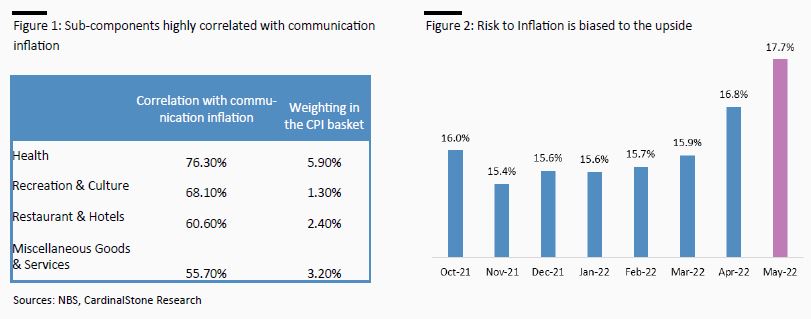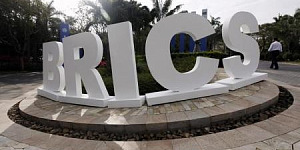Consumer prices remain elevated in Nigeria, with headline inflation scaling 90bps to reach an 8-month high of 16.8% YoY in April 2022. Parsing through the breakdown, the food basket, which surged by 116bps, accounted for c.56.0% of the rise in CPI. The food price pressures reflect the impact of the ongoing lean season, a period coinciding with lower harvesting and relative scarcity. That said, we believe the pace of food inflation also slightly reflected the impact of the low base effect from April 2021.
Elsewhere, pressures re-surfaced in the core basket, with related inflation increasing by 26bps to a 5-year high of 14.2% YoY. The reading reflects the impact of higher diesel prices and their knock-on effect on transport costs. All the 13 sub-components of the core index were up, with HWEGF and transport recording the paciest increases.
We see scope for sustained inflationary pressures in the near term, with food prices likely to remain elevated due to the lean season and security concerns in food-producing regions. In addition, the double whammy of higher electricity tariffs and energy costs could stoke further price pressures. We expect MoM headline inflation to increase marginally to 1.79% in May (vs 1.76% in April). However, given the low base effect from 2021, headline inflation may likely print at 17.7% YoY in May 2022.
In a separate development, the Association of Licensed Telecommunications Operators of Nigeria (ALTON) has proposed a 40.0% hike in the cost of calls, SMS, and data. If approved, the new pricing structure could cascade to pressures on the communication sub-component of the core basket. We also note the possible indirect impact of higher communication prices on other core CPI sub-components that highly correlate with it (see figure 1).








































